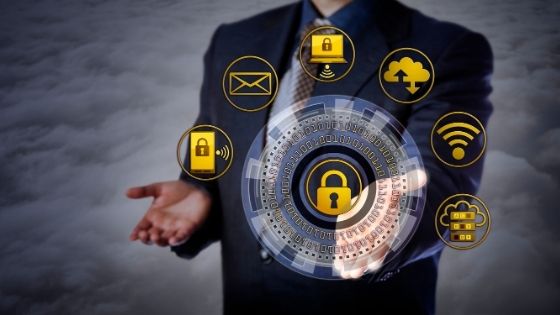The healthcare profession involves dealing with large numbers of patients day in and day out. All the private information from these confidential encounters must be meticulously documented. This quickly results in large quantities of information that must be protected so as not to jeopardize the privacy of the patient data, which not only leads to diminished trust in the medical profession but even legal repercussions. As technology and time have progressed, this information is mostly digital, and therefore its protection is secured by way of a sound cybersecurity protocol, which must be adhered to by employees at all levels and positions in the hospital system. The following are cybersecurity tips for every healthcare professional to honor the law, the reputation of their profession, and the trust of the patients.


Train Employees
The first cybersecurity tip for healthcare professionals is to make sure that employees are trained properly regarding the cybersecurity protocols of their profession. In many circumstances, the weakest link in the chain of healthcare cybersecurity ends up being the user. As a result, making sure all personnel is familiar with the proper protocol and measures to take and enforce ensures the overall security of the medical information apparatus. In some cases, a consultant may be brought in who can perform an initial assessment as to the level of proficiency and know-how of the team members and provide training accordingly in order to make sure everyone is caught up and on the same page.
Update Software
The second cybersecurity tip for healthcare professionals is to refrain from neglecting to perform timely software updates. While caught up in the business of one’s everyday duties, it is all too easy to ignore getting necessary software updates. However, this will leave computer systems and the information contained therein devoid of new security patches and far more vulnerable to future attacks. Criminal hackers often capitalize on others’ complacency and can easily hack into computer systems with out of date software.
Control Access
The third cybersecurity tip for healthcare professionals is to regulate access to private patient information. Criminal hackers have often targeted the sensitive information of hospital patients, which is protected by strict medical privacy laws. Failure to protect this vital information can therefore result in serious legal repercussions and other crimes like identity theft and financial fraud. Limiting access to patient information only to authorized persons, denying it to terminated and potentially disgruntled former employees, and verifying all instances of access, including who and when they have been carried out. This is often easier to do with modern software with many relevant functions already built-in.
Change Passwords
The fourth cybersecurity tip for healthcare professionals is to avoid reusing the exact same password for every login. Duplicated passwords or those that are too easy to guess greatly increases the risk of a security breach. While using duplicate or simple passwords is human nature, it is a huge mistake that should be avoided, and convenience should not come before security in a professional setting of any kind. Duplicate passwords can result in easy and simultaneous access to multiple accounts containing important information. Periodically updating passwords can help reduce the risk.
Store Passwords
The fifth and final cybersecurity tip for healthcare professionals is to securely store all passwords in a safe location. This means never directly sharing passwords in emails or other documents, but instead using a reputable password storage system. Using numbers and special symbols, avoiding personal details, and using mnemonic devices can help employees recall the passwords in a way that hackers and others cannot decipher and detect. Enlisting the help of professional Cybersecurity Services can also help greatly in this capacity.
The medical field is rapidly growing and in exponential demand, and with it are large quantities of vital and sensitive information, compromise, and theft of which can lead to serious legal and other forms of danger for patients. However, staying prepared with the proper protocols can go a long way in lowering the risk and protecting patients. Complacency is unfortunately the insidious enemy that often helps make medical cybersecurity systems far more vulnerable to attacks by others with fewer scruples. Therefore, training workers to stay ahead of the curve will help save the medical field much preventable difficulty down the line.









